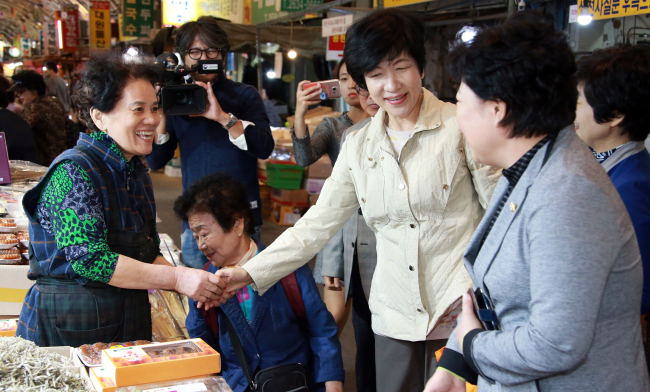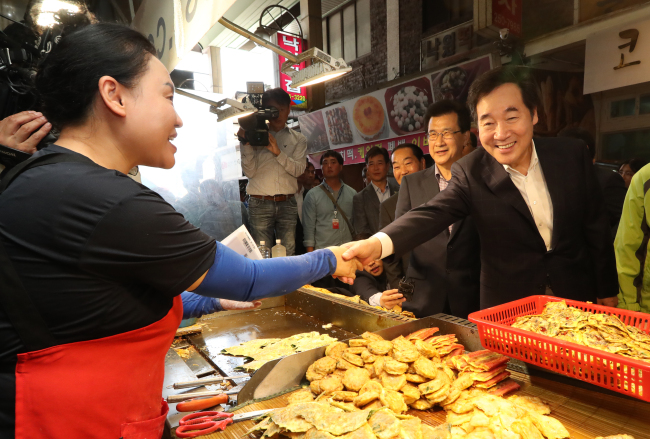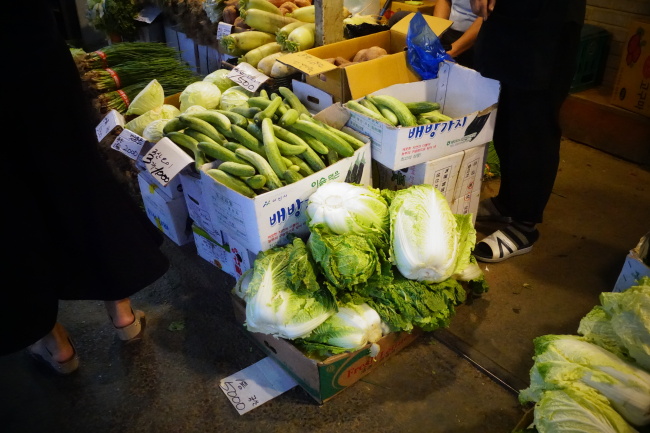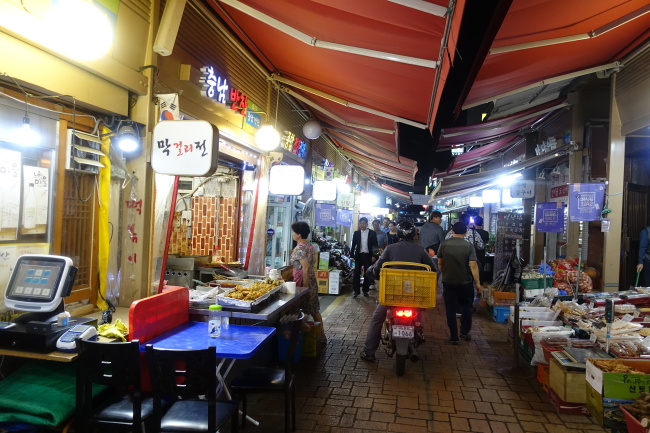‘Anti-graft law makes little difference to small-sized markets’
Merchants blame slow economy and long holiday, rather than anti-graft law for dull sales
By Bae Hyun-jungPublished : Oct. 4, 2017 - 11:45
The nation’s two most celebrated national holidays -- the Lunar New Year in the winter and Chuseok in the fall -- have always been the peak season for the retail and distribution industry.
Traditional markets, however, largely seem to have missed such vigor this year, with a visible decrease in the number of visitors compared to previous years.
Traditional markets, however, largely seem to have missed such vigor this year, with a visible decrease in the number of visitors compared to previous years.

Some blame the Improper Solicitation and Graft Act, still often dubbed the Kim Young-ran law after its initiator, but small-sized sellers at marketplaces tend to refute the alleged connection.
“This is a relatively small-sized traditional market, so there’s usually not that many customers who would purchase (gifts) with a lump sum,” said Kim Do-jin, a fruit seller at Yeongdong Traditional Market in Seoul’s Gangnam-gu.

“Things may be different in larger markets such as the Noryangjin Fish Market or Garak Market, but here it’s mostly just local residents purchasing food for themselves and families.”
The seller admitted there had been a downturn in sales, especially during the past year, but remained skeptical over the possible impact of the anti-graft law -- which was put into effect in September last year.

“The kind of business gifts that are regulated by the law are usually purchased in department stores, as it is the delivery service and tracking, as well as the brand value that matters (in such cases),” Kim said.
“Those who gift-purchase on behalf of corporates don’t really care about cost saving. After all, it is not their own money that they have to spend.”
An exception may be flower shops which have seen a drop in their sales of congratulatory or condolatory wreaths, he added.

Dismissing the causal relationship between the anti-graft law and the lackluster market, merchants said low sales were due to the long holiday and the public’s consequent rush to travel abroad.
“A majority of our customers are long-time residents in the neighborhood who celebrate national holidays here at their homes, with their children and relatives coming for visits,” said Kim Yang-ja, a greengrocer at Mangwon Traditional Market in Seoul’s Mapo-gu.
“These people usually wouldn’t go anywhere because they have to receive guests and prepare food for them all, but this year, even they seem to have taken off for an overseas trip. But then again, I would do the same if I had a 10-day holiday.”
Even the cost competitiveness of traditional markets was not sufficient to induce those who decided to stay.
According to research by the Korea National Council of Consumer Organization, the groceries budget was the lowest when purchased at traditional markets.
While it took a four-member family 193,000 won ($168) to set up a Chuseok memorial ceremony, the corresponding amount was 247,808 won for retail stores and 370,754 won for department stores, data showed.
Despite the conspicuous price gap, many traditional markets continued to struggle with high inventory and low sales, a challenge which the government vowed to tackle.
In a financial policy meeting held last Wednesday, the Ministry of SMEs and Startups called for the related organizations’ cooperation in executing government subsidy in time.
In July, the ministry decided to input some 940 billion won to support local traditional markets, up from 305.2 billion in 2015 and 321 billion won last year.
By Bae Hyun-jung (tellme@heraldcorp.com)



![[Herald Interview] 'Amid aging population, Korea to invite more young professionals from overseas'](http://res.heraldm.com/phpwas/restmb_idxmake.php?idx=644&simg=/content/image/2024/04/24/20240424050844_0.jpg&u=20240424200058)












![[KH Explains] Korean shipbuilding stocks rally: Real growth or bubble?](http://res.heraldm.com/phpwas/restmb_idxmake.php?idx=652&simg=/content/image/2024/04/25/20240425050656_0.jpg&u=)

